Join 40,000+ sales and marketing pros who receive our weekly newsletter.
Get the most relevant, actionable digital sales and marketing insights you need to make smarter decisions faster... all in under five minutes.
11 diverse stock photo resources to help buyers see themselves in your brand

Dec 11, 2020
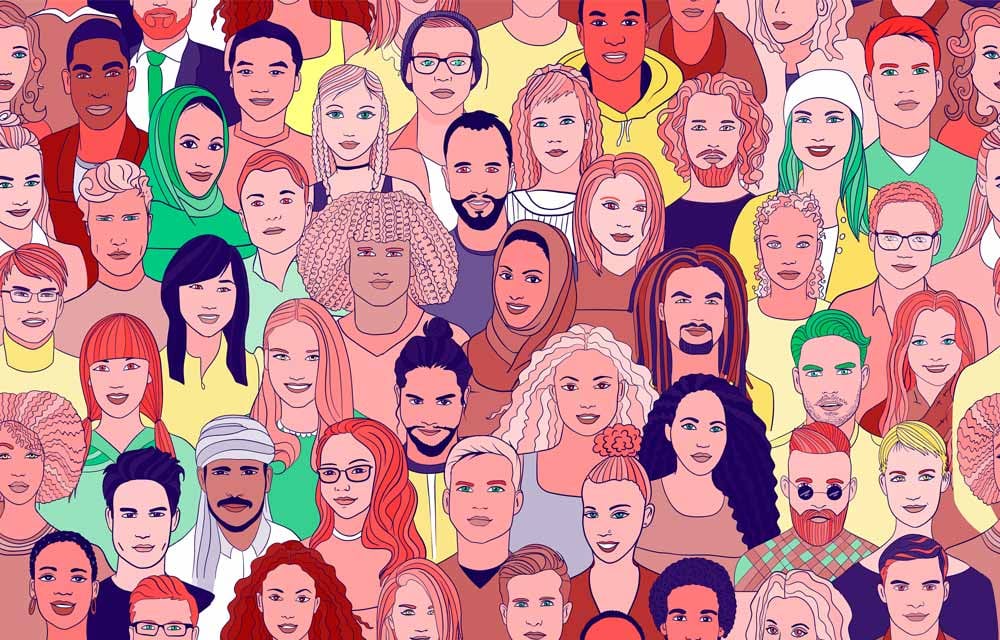
Diverse Stock Photo Resources
- Diversity Photos
- The Jopwell Collection
- The Gender Spectrum Collection
- Body Liberation
- Klaud9
- Tonl
- Muslim Girl collection on Getty Images
- Pexels
- #WOCInTech on Flickr
- Nappy.co
- Disabled And Here
Editor's Note: This article was originally published in June 2019 by Ramona Sukhraj. It has been updated by the author to include new data and resources.
The year was 2017. A young marketer found herself in the all-too-familiar struggle of finding a suitable stock photo for an article.
She clicked through page after page, losing patience and hope with every scroll. Her eyes grew heavy with fatigue — and then it appeared.
Her mouth dropped. It went dry. But it wasn't because she had finally found the elusive, perfect stock photo she so desperately sought. It was because of this:

The only thing harder than finding a quality stock photo is finding a quality, realistic stock photo of an underrepresented group.
I don't share this story because this image is “offensive," per se but because it is an inaccurate representation.
The ornate outfit the man is wearing in this stock photo is probably what many in the U.S. think of when they picture an Indian man, but it is not something that would be worn casually to work, just “watching something funny on a laptop” as the caption suggested.
It’s the flashy attire people unfamiliar with South Asian culture think is worn 24/7 and perpetuates the one-dimensional image of the community in Western media — and it left a sour taste in my mouth.
Stock photos like this showcase an unrealistic and stereotypical portrayal of underrepresented groups, promote ignorance and misinformation, and overall defeat the goal of inclusive marketing.
Why is this a problem?
While resources are getting better the selection of stock photos with people remains notoriously homogenous and often a bit tone deaf.
Search any general term on the major competitors (i.e. Shutterstock, iStock, etc.) and you will undoubtedly be met with options dominated by young, thin, white, heterosexual men without visible disability.
(Check out this informal, but eye-opening investigation by RKA Ink.)
The problem for marketers is that not everyone falls into these buckets.
Inclusive marketing is supposed to make people feel seen and understood. It's supposed to expand your reach by connecting with individuals from more walks of life, but cliche images like the one I encountered elicit eye-rolls, not endorphins.
Note: While my story may have been a tad melodramatic, my shock upon seeing the image was in no way exaggerated. In fact, here is a snap I sent my friends shortly after:
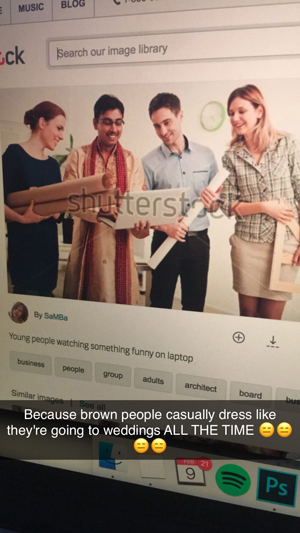
Note: The vague caption: “Young People watching something funny on laptop.”
The concept of “representation” may seem like a new-age call-to-action, but it’s rooted in a very simple, human idea: people gravitate toward and respond to seeing others like them.
It creates a sense of belonging and affirmation and is exactly why we use images of people in our marketing in the first place. So, it needs to represent accurately.
Images with people help prospects envision what it’ll be like working with you or using your products in their daily lives. Even more so than words, they help people recognize themselves as a good (or bad) match for your organization — but not if those images are full of stereotypes.
Last year, Adobe found that 66% of Black consumers, and 53% of Latinx Americans feel their ethnicity is portrayed stereotypically in advertisements.
On the flip side, Google found that 69% of Black consumers are more likely to purchase from a brand whose advertising positively reflects their race/ethnicity, and this number jumped to 71% for LGBTQ+ consumers.
Positive and accurate portrayals of underrepresented groups in your marketing pays off. However, if you’re relying solely on mainstream stock photography to accomplish this, you may not be doing it effectively.
Luckily, an increasing number of stock photo resources are tackling this problem head-on. Keep in mind, these resources are not necessarily more diverse than the major stock photo competitors, but they will help fill some of gaps that exist there.
1. Diversity Photos
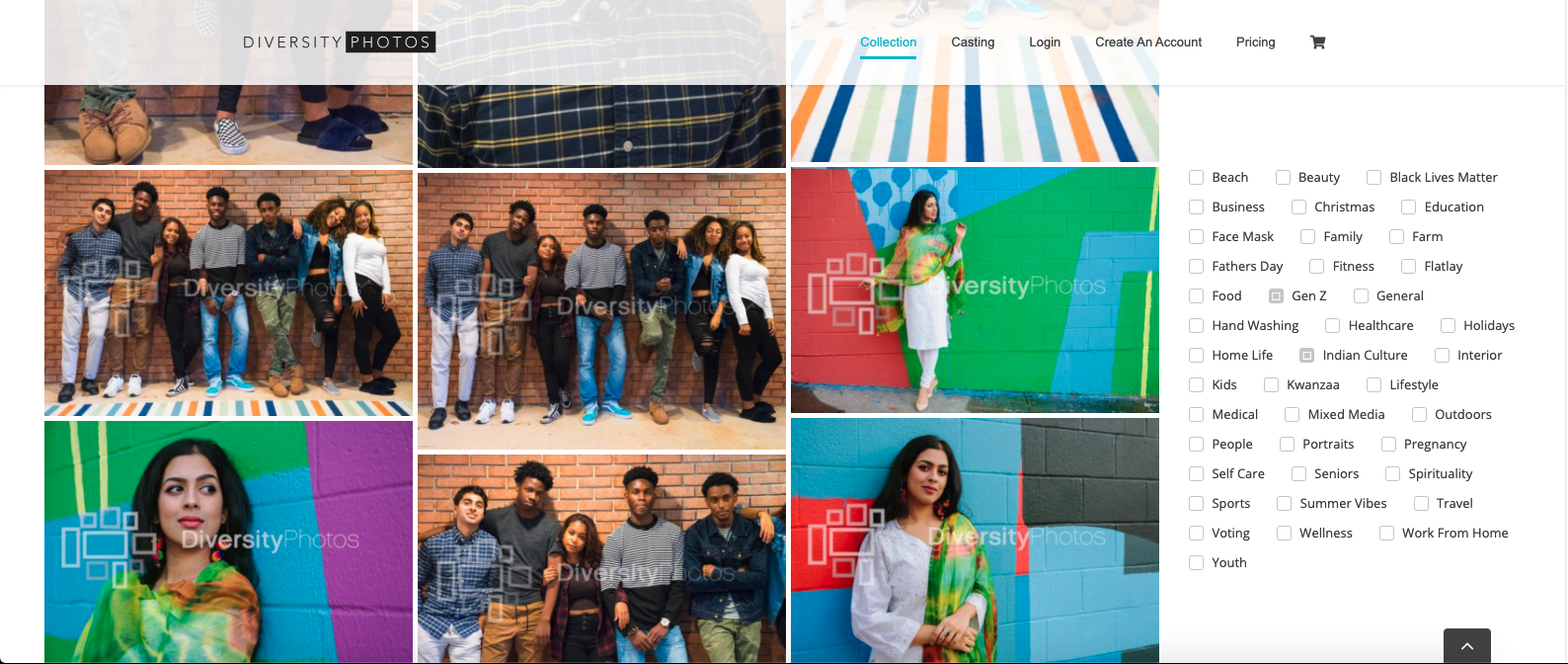
Diversity Photos a comprehensive resource that's been trusted by big brands such as Facebook, Huffington Post, and Microsoft.
Started by a team of photographers and creatives, the resource offers high-quality images of underrepresented groups in a wide range of categories including: Business, Indian Culture, Holidays, Spots, and the very relevant Face Mask and Work from Home.
Images are available a la carte for $50 each or by subscription for $250 for 10 images a month. Custom enterprise pricing is also available.
2. The Jopwell Collection
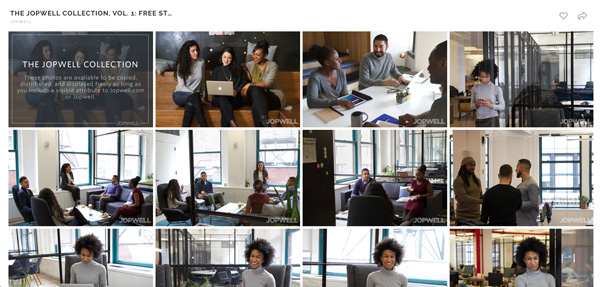
Jopwell, the leading “career advancement platform for Black, Latinx, and Native American students and professionals,” has created a free resource focused on images of, you guessed it, images of Black, Latinx/Hispanic, and Native American professionals and students in the workplace.
Jopwell has also created a dedicated Intern Edition, featuring images of younger members of the groups in office settings. Personally, i think this is amazing to see. I hope seeing these images in use will further encourage younger minorities to pursue professional careers.
3. The Gender Spectrum Collection
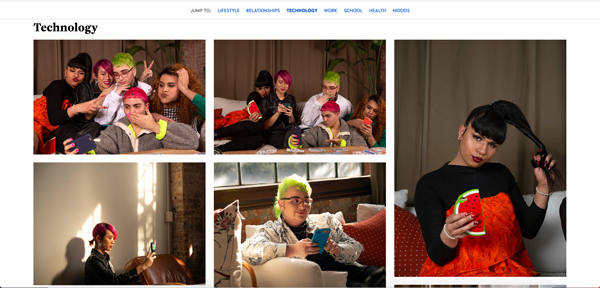
Earlier this year, Vice Media's feminist channel Broadly launched “The Gender Spectrum Collection,” a stock photo library of gender-inclusive images. The over 180 image collection features 15 trans and non-binary models and is all available under a Creative Commons license, free for the public and media professionals to use.
4. Body Liberation
With brands like Victoria's Secret coming under fire for their lack of body inclusion, a resource like Body Liberation has never been more important.
This site offers a variety of "plus-size, body positive" photos in dozens of categories including holidays, self-care, and remote work.
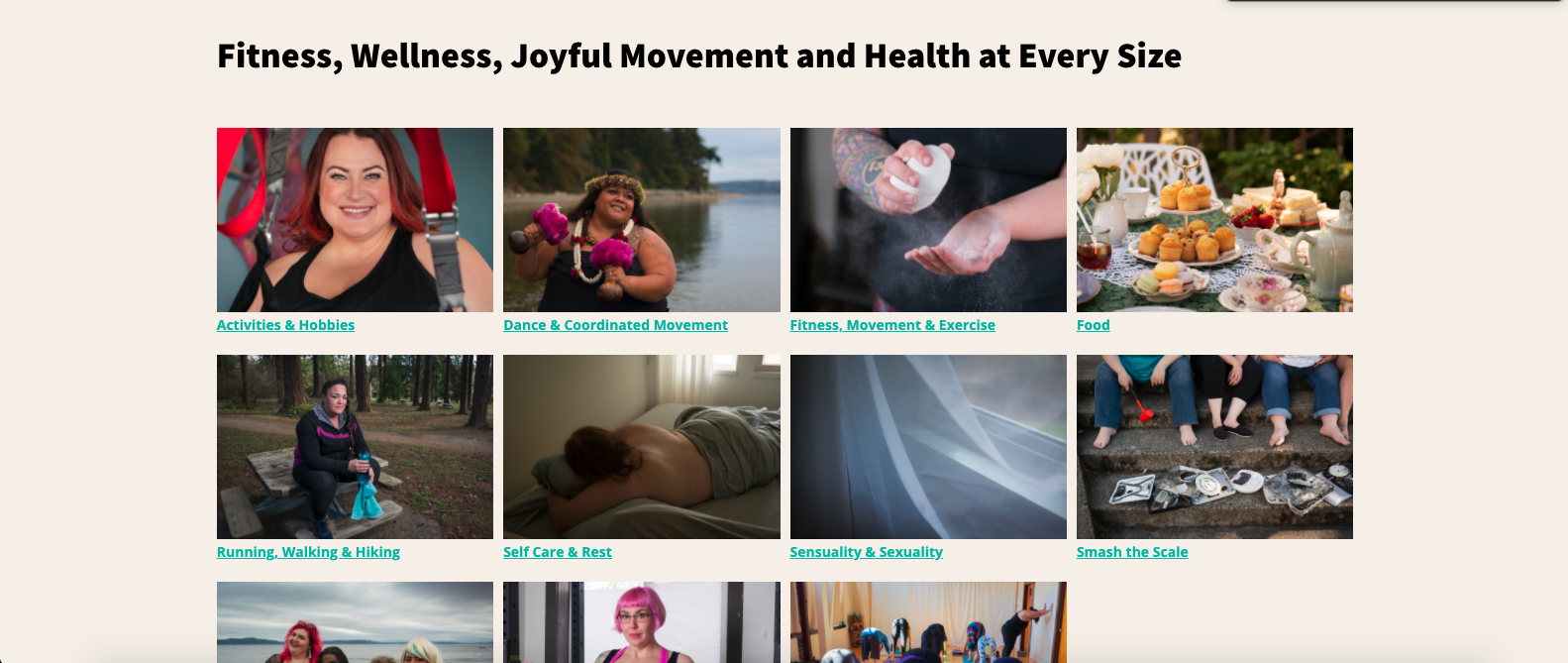
Pricing is based on a credit system starting at $9.20 depending on your plan.
5. Klaud9
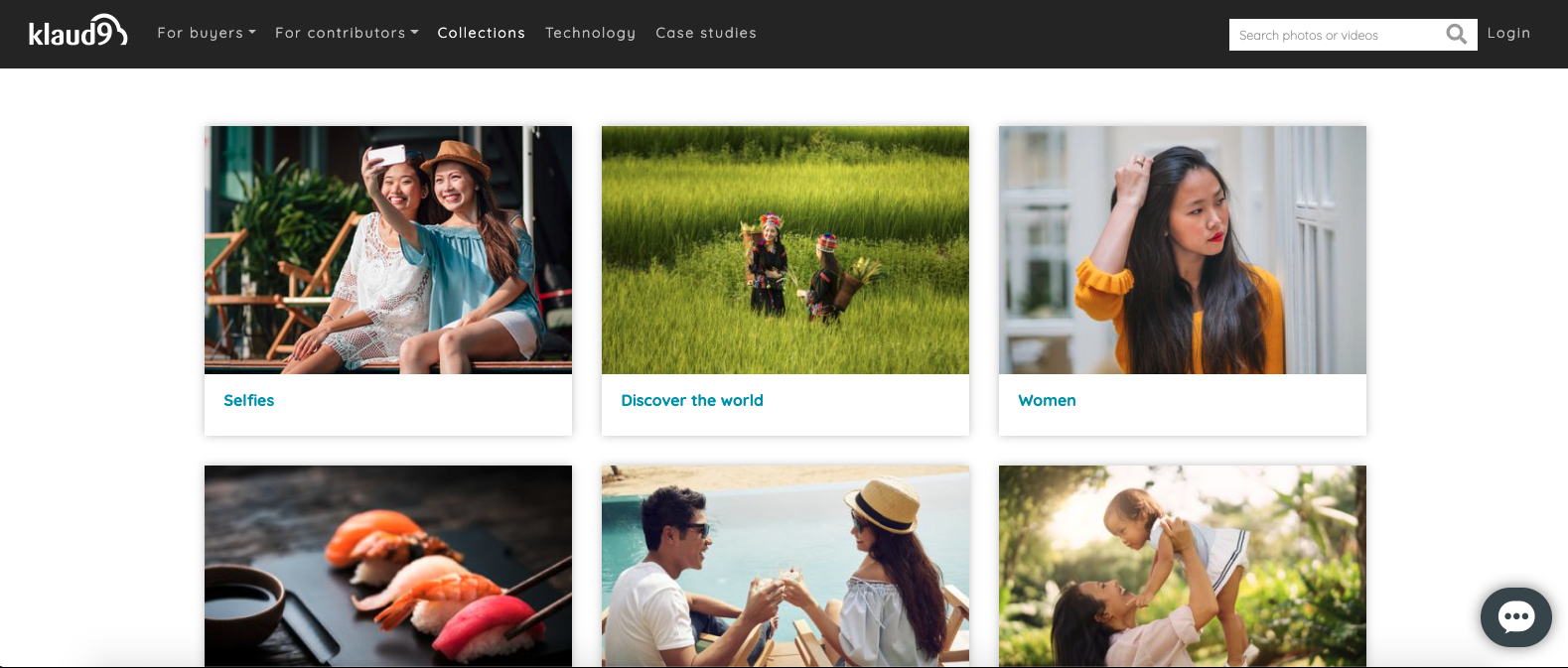
Based in Singapore, Klaud9 has thousands of photos focused on individuals from Asian backgrounds and has worked with brands like Google, Visa, and Nivea.
Their collection touts over 57,000 photos of businesswomen, mature women and women with disabilities. They also offer custom photoshoots.
6. Tonl:
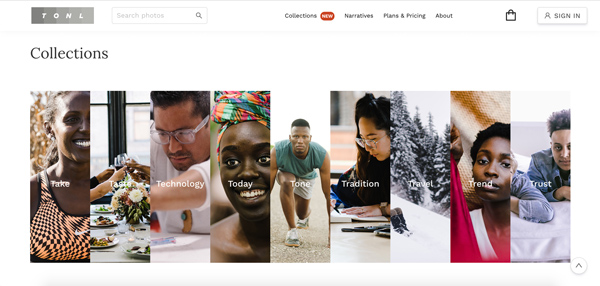
Tonl’s goal is to deliver “culturally diverse stock photos that represent the true world we live in” and features beautiful images of black and brown professionals. Plans and individual purchases are available. You can get started for as little as $25.
7. Muslim Girl collection on Getty Images:
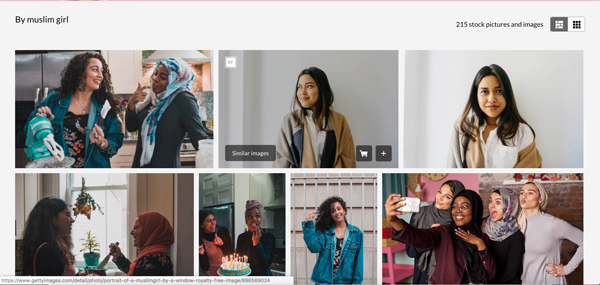
Stock photos aside, modern Islamic women are definitely no strangers to misrepresentation in the media. The Muslim Girl collection on Getty Images aims to end that. Images are subject to Getty pricing.
8. Pexels
Pexels is a popular free stock photo and videos resource that has always a wider range of diverse options compared to other major players in the space, but recently, they made waves by putting a great focus on gender and relationships.
9. #WOCInTech on Flickr:
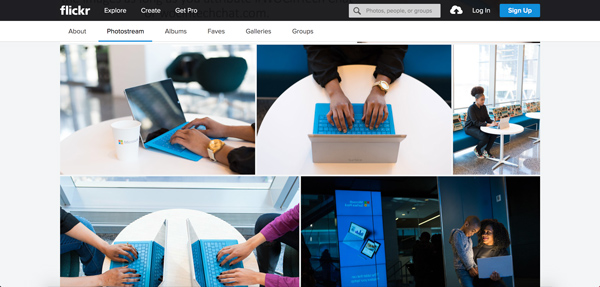
Started by Christina Morillo, a New-York-based tech professional, #WOCinTech is an awesome, free-for-use-with-attribution gallery featuring imagery of women of color working the tech space.
10. Nappy.co
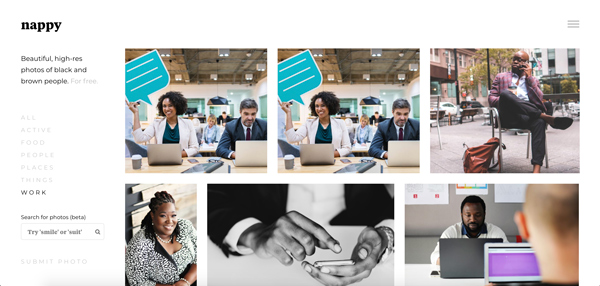
Similar to Tonl, Nappy.co shares a variety of high-resolution images of Black and Brown professionals, but with the added bonus of being free to use!
11. Disabled and Here
Disabled and Here is collection of free and inclusive stock photos featuring disabled Black, Indigenous, people of color (BIPOC) from across the Pacific Northwestern United States.
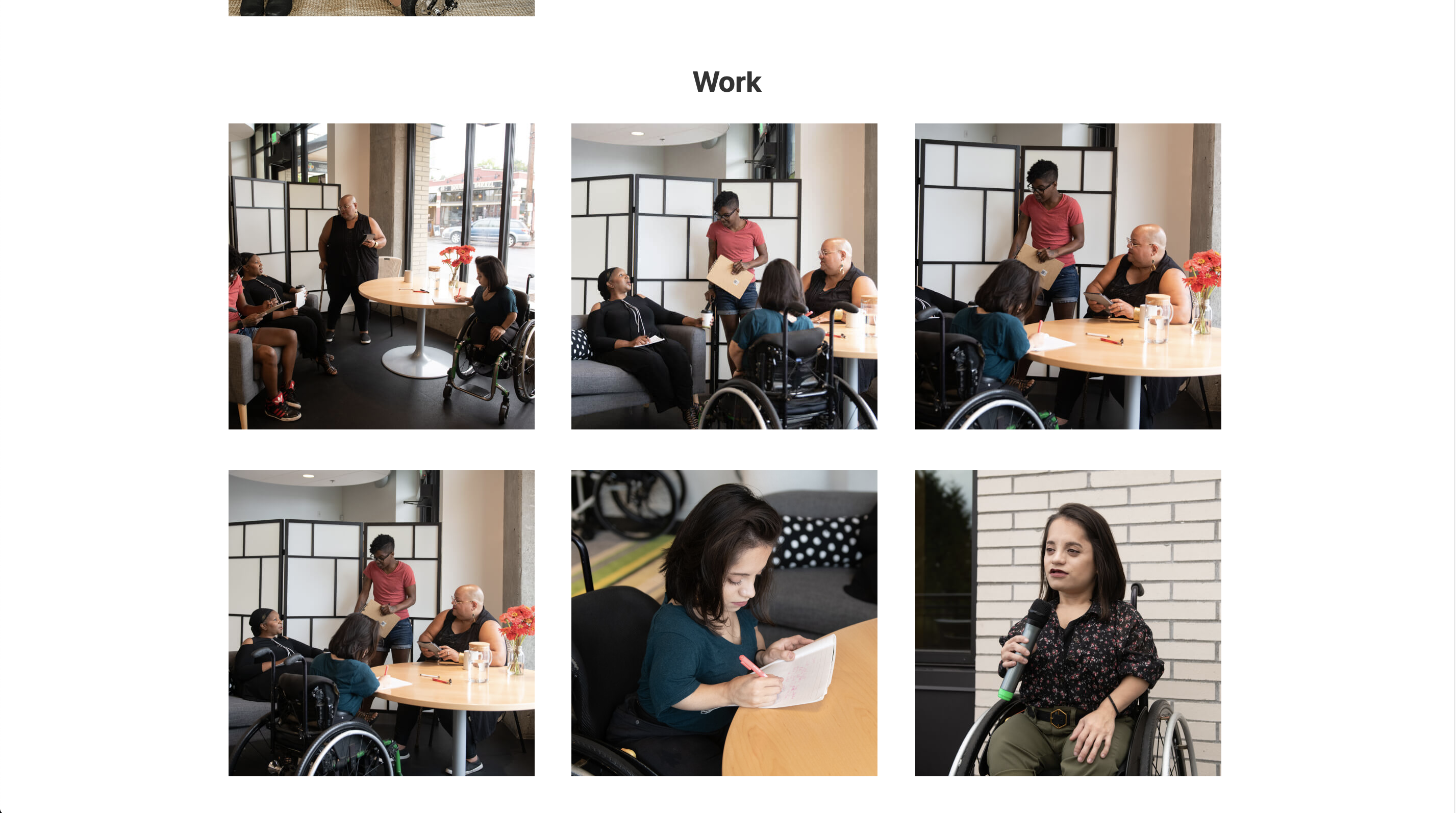
The site is a "disability-led" initiative aimed at "a reclaiming of [their] depiction, featuring disabled BIPOC with different diagnoses (or lack thereof), body sizes/types, sexual orientations, and gender identities."
"This is disability representation from our own community," it proudly states.
Represent those you want to represent you
Representation wasn’t something I had most of my life — minus, to a degree, Princess Jasmine (thanks, Disney). It’s something I didn’t even know I wanted; something I didn’t know I craved until it slowly started happening — and you can bet your dollar I remember the brands and individuals who made it happen.
Diversity and inclusion in your brand’s stock photos and marketing assets can have the same effect. It can make you welcoming and appealing to a wider audience, perhaps one you never considered.
While I discourage the inclusion of diverse faces just for the sake of checking the boxes — representative media is something marketers should always keep in mind.
A 2019 report conducted by Adobe showed 61% of Americans find diversity in advertising important.
Make an effort to be more authentically representative in your marketing and, in turn, perhaps more diverse customers will proudly want to represent you.
Free Assessment: